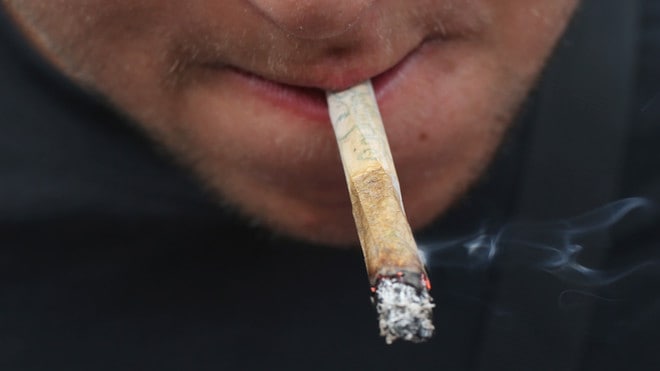Marijuana Smoking Alters The Brain Of Young Age Adolescents
Nikki Attkisson | Last Updated : June 19, 2021According to a recent study, marijuana appears to impact adolescent brain development, changing it in ways that might impair their thinking, decision-making, and memory abilities as they mature.
Marijuana Smoking Alters The Brain Of Young Age Adolescents
Brain scans of around 800 teens revealed that those who began using marijuana had significant thinning of the cerebral cortex, which is the outer layer of the brain responsible for thinking, perception, and language.

According to senior researcher Matthew Albaugh, a clinical psychologist and assistant professor at the University of Vermont Medical Center in Burlington, this weakening notably impacted the brain area linked with working memory, inhibition, attention, and emotional regulation.
By the age of 19, teenagers who smoked marijuana showed evidence of attentional impulsivity, or an inability to focus without interruption, he added.
Cannabis influences neuron maturation, particularly in certain prefrontal regions, which may affect impulsivity — one’s capacity to focus and stay on task, according to Albaugh.
His team analyzed data from a long-term European study of adolescent brain development for this investigation. Participants’ brains were examined when they were 14 and again when they reached 19.
Albaugh’s team focused on 799 14-year-olds who stated they had never smoked marijuana. Initial brain scans revealed no significant differences between the children.
The adolescents were questioned about their marijuana usage again during their follow-up scan, providing researchers the opportunity to discover if those who had smoked weed in the intervening years had any significant brain changes from those who hadn’t. They did, as it turns out.
According to Albaugh, the cerebral cortex always thins down during adolescence as brain connections are polished and useless pathways are cut away.
Teens who smoked marijuana, on the other hand, had a higher amount of cortical thinning, indicating alterations that might affect their future brain function.
This additional thinning happened in brain locations known to be rich in receptors that respond to cannabis compounds, according to Albaugh, and it looked to be dose-dependent. The more marijuana smoked, the more pronounced the thinning.
According to him, the rate of thinning in specific brain regions, notably pre-frontal brain areas, was related to the quantity of cannabis that individuals reported at follow-up.
The thinning of the brain at the age of 19 did not appear to impact other brain processes other than attentional impulsivity, according to the findings. According to Albaugh, researchers intend to observe these young people until they reach the age of 23 to discover whether further issues arise in the behavior and abilities of marijuana smokers.
The new study was published in the journal JAMA Psychiatry on June 16th.
According to Dr. Scott Krakower, a child and adolescent psychiatrist and substance abuse treatment expert at Zucker Hillside Hospital in Glen Oaks, N.Y., there’s a strong possibility that these structural alterations may lead to difficulties later on.
He believes that if they study it long enough, they will observe more changes in response speed, impairment, and memory formation, according to Krakower. All of those things will happen as they continue to research this.
These findings, according to Albaugh, should be taken into account as additional states allow recreational marijuana usage for adults.
A policy may be ahead of science. More study is urgently needed, he added. There is a lot of evidence that this developmental window of adolescence may be a particularly sensitive time for drug use.
Krakower concurred, adding that the legalization of marijuana had normalized marijuana usage.
Paul Armentano is the deputy director of NORML, a nonprofit that advocates for marijuana prohibition reform. He added that studies have found no difference in teenage marijuana usage following state-level legalization.
Other research has revealed that marijuana retailers rigorously verify ID at the door and regularly adhere to state-imposed age limitations, he noted.
With over 15 years as a practicing journalist, Nikki Attkisson found herself at Powdersville Post now after working at several other publications. She is an award-winning journalist with an entrepreneurial spirit and worked as a journalist covering technology, innovation, environmental issues, politics, health etc. Nikki Attkisson has also worked on product development, content strategy, and editorial management for numerous media companies. She began her career at local news stations and worked as a reporter in national newspapers.
